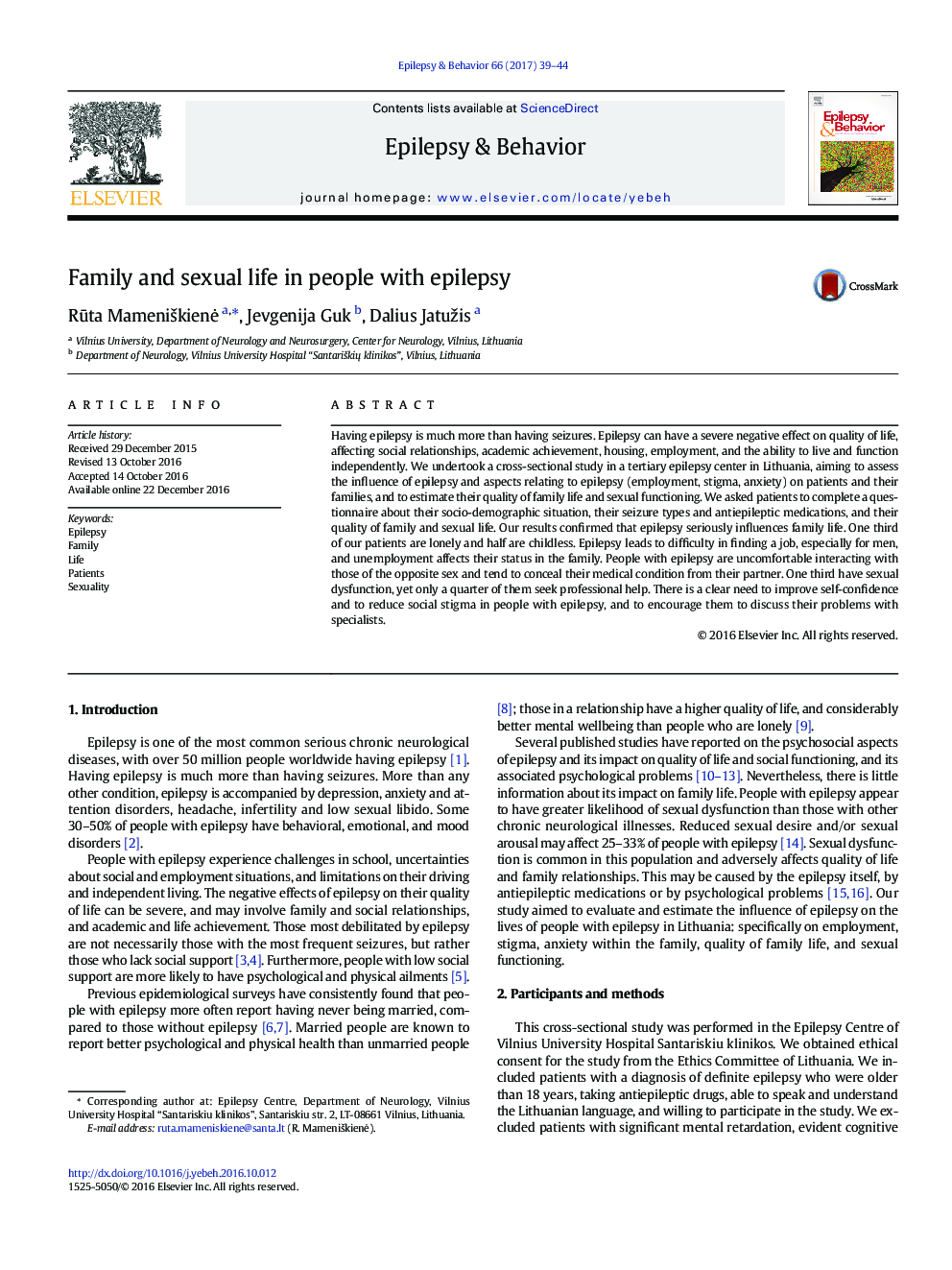| Article ID | Journal | Published Year | Pages | File Type |
|---|---|---|---|---|
| 5628005 | Epilepsy & Behavior | 2017 | 6 Pages |
â¢Many people with epilepsy are lonely and around half are childless.â¢People with epilepsy with lower social status tended to have lower quality of family life.â¢People with epilepsy commonly reported sexual dysfunction but few of these sought professional advice.
Having epilepsy is much more than having seizures. Epilepsy can have a severe negative effect on quality of life, affecting social relationships, academic achievement, housing, employment, and the ability to live and function independently. We undertook a cross-sectional study in a tertiary epilepsy center in Lithuania, aiming to assess the influence of epilepsy and aspects relating to epilepsy (employment, stigma, anxiety) on patients and their families, and to estimate their quality of family life and sexual functioning. We asked patients to complete a questionnaire about their socio-demographic situation, their seizure types and antiepileptic medications, and their quality of family and sexual life. Our results confirmed that epilepsy seriously influences family life. One third of our patients are lonely and half are childless. Epilepsy leads to difficulty in finding a job, especially for men, and unemployment affects their status in the family. People with epilepsy are uncomfortable interacting with those of the opposite sex and tend to conceal their medical condition from their partner. One third have sexual dysfunction, yet only a quarter of them seek professional help. There is a clear need to improve self-confidence and to reduce social stigma in people with epilepsy, and to encourage them to discuss their problems with specialists.
